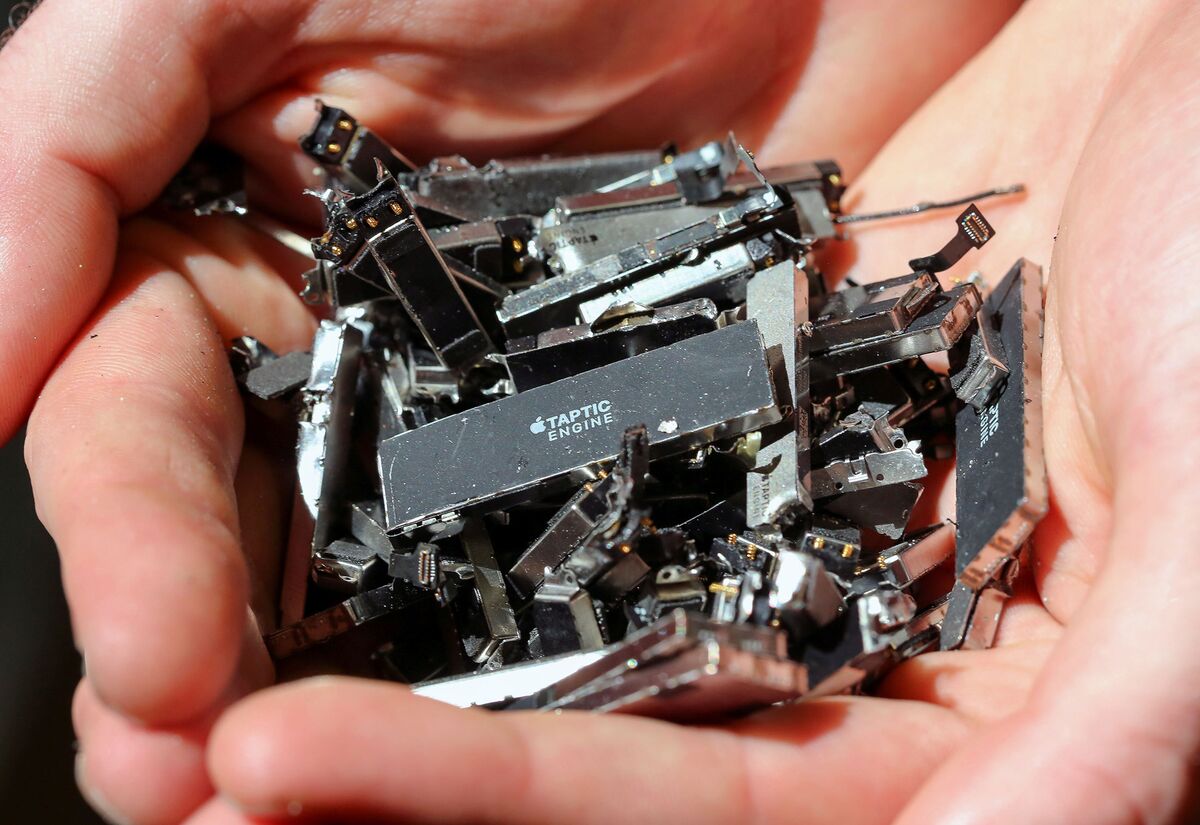
The Surprising Revelation about Apple’s iPhone Recycling Program – Unveiled by Bloomberg
Key Takeaways:
Over the years, Apple has presented itself as a champion of sustainability and environmental responsibility. Its iPhone recycling program, in particular, has been widely praised for its commitment to reducing electronic waste. However, a recently published report by Bloomberg sheds light on a shocking truth regarding Apple’s recycling initiatives, inviting questions about the tech giant’s claims and raising concerns about the true destination of recycled devices.
The Untold Story of Apple’s iPhone Recycling Program
For years, users who wanted to dispose of their old iPhones could trust Apple to recycle them responsibly, or so it seemed. Apple’s recycling program focused on the promise of dismantling and reusing materials from these devices, keeping them out of landfills and minimizing the harm to the environment. However, according to Bloomberg, the truth might not be so rosy.
Bloomberg’s report reveals that instead of being genuinely recycled, vast numbers of iPhones collected in the program were actually sold to resellers. These third-party companies then either refurbished and reused the devices or ultimately imported them to be sold in other countries. This revelation has raised concerns about Apple’s transparency and environmental commitment.
The investigation highlights an important discrepancy: In Apple’s marketing campaigns, it explicitly states that the company “custom-processes” all iPhones received through its recycling program. However, Bloomberg’s report indicates that the devices are neither custom-processed nor explicitly tracked throughout the recycling process. This gap in transparency fuels doubts about where recycled iPhones truly end up.
The Environmental & Privacy Implications
The controversy surrounding Apple’s recycling program extends beyond unresolved transparency concerns. While the devices may find their way into reselling markets, a lack of oversight raises questions about the conditions and ethical practices employed by third-party resellers. Furthermore, the redirection of devices to other countries can exacerbate electronic waste challenges and inadvertently support non-sustainable practices.
Another significant concern revolves around user privacy. When individuals dispose of their iPhones through Apple’s recycling program, it is reasonable to assume that personal data is adequately wiped to protect users’ privacy. However, with a portion of recycled iPhones leaving the program and undergoing refurbishment, there is potential for sensitive information to remain on these devices, presenting a significant privacy risk.
The impact of this revelation is substantial. It prompts consumers to reevaluate their perceptions of Apple’s recycling efforts and consider the extent to which green initiatives are genuinely prioritized. It also urges individuals to be more mindful of the environmental and privacy consequences related to technology disposal.
How can consumers make a difference?
The truth about Apple’s iPhone recycling program should not completely discourage consumers from participating in electronic recycling. Recycling remains an essential practice in reducing electronic waste and protecting the environment. Instead, individuals should explore alternative ways to recycle their iPhones responsibly.
An immediate step consumers can take is to educate themselves about reputable electronic recycling entities available in their area. By engaging with certified programs specifically designed to ensure proper handling and eco-friendly disposal, users avoid potential pitfalls associated with less scrupulous practices.
Furthermore, consumers can reconsider their device usage and upgrade patterns. Extending the lifecycle of their smartphones by opting for repair or trade-in programs helps to minimize electronic waste.
Beyond individual actions, consumers can also advocate for stricter regulations and oversight of e-waste practices. By supporting organizations and initiatives that push for greater transparency and enforceable standards, individuals become part of the movement to hold tech companies accountable for their recycling commitments.
Frequently Asked Questions
Conclusion
The shocking revelations brought to light by Bloomberg regarding Apple’s iPhone recycling program have undoubtedly shaken the public’s perception of the company’s environmental commitment. With sustainability and responsible electronic waste management becoming increasingly vital concerns, it is crucial for both consumers and tech giants like Apple to prioritize transparency, ethical recycling practices, and user privacy. By holding companies accountable and actively participating in responsible recycling alternatives, we can collectively strive for a more sustainable future.
Source: insidertechno.com